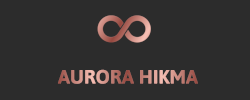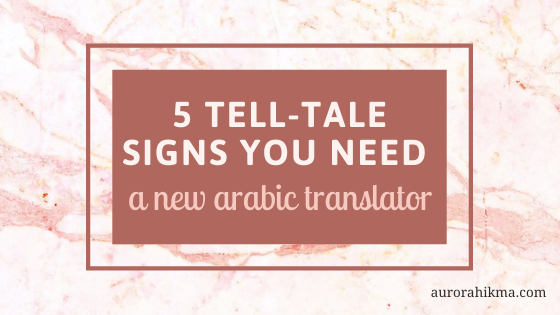If you’re not an Arabic speaker and you’re doing business in Dubai, chances are you’ve used the services of a translator before. Nowadays, small and medium business owners can easily verify the work of all kinds of experts in their fields with quick searches online, but the one thing they cannot easily verify is the work of a translator, due to the lack of knowledge of the other language.
A lot of my clients rely on Arabic-speaking friends to verify if a translation is good or not, but what if your friend is too busy or you don’t have an Arab friend?
Read on to find out 5 ways you can tell if your Arabic translator is doing a poor job!
- Google Translate provides a coherent back translation
Back translations are when you take a translated text and get it translated back into the original language. Let’s say you have a social media post translated into Arabic by a translator, and you pop it into Google Translate (or any other similar machine translation tool) to double-check it. You will know your translator is doing a poor job if you can easily read and understand the translation back into English because Arabic and English grammar are vastly different to the point where sentence structures are not the same at all. Machine translation isn’t sophisticated/clever enough to fix sentence structure and other complicated grammatical issues that can arise when translating. So, if your translation of the translated piece sounds fine, it probably is because your translator’s skills are no better than Google Translate. Or worse, they probably tried to pass off machine translation as their own work 😳
- Arab clients communicate with your business in English
When your translations aren’t good, you will find a majority of your Arabic-speaking clients will be responding to you in English, and this is especially evident on social media. Another example would be if you have a walk-in business like a restaurant or salon and you find that Arab clients aren’t reading the price lists or menus in Arabic, and reading them in English instead. You will have to evaluate this by seeing the reactions of people your business communicates with.
- People come up to you and point out mistakes in the Arabic
Occasionally, some bilingual speakers of Arabic and English might come up to you and point out to you, directly, mistakes that are present in your Arabic content. However, take heed that these would be extremely embarrassing errors, not everyday spelling and punctuation mistakes. These are the kinds of errors that can get you in trouble for offending local customs or being outright disrespectful to religious and cultural values.
- Your translator does not ask you any questions about context
In the world of translation, the best knowledge you can have — aside from knowing another language — is expertise in other fields and an ability to understand the context. An Arabic translator who cannot tell the difference between the meaning of the word “bottle” when referring to a baby bottle vs. a bottle of water vs. bottled up emotions is not going to provide you with a proper translation of the word in context.
- Your translator claims to have experience but their English is terrible
This happens a lot. In some Arab countries, even though children are taught English from a young age at school, they still end up not being fluent enough by the time they graduate university, due to the lack of a proper English-speaking environment. If you’re translating from English into Arabic and your translator’s emails to you are not in the proper format or the way they word their sentences in English sounds terrible, then stay away. It doesn’t matter how experienced they are if they cannot communicate well in English, because it is highly likely they will face comprehension issues that will lead to poor quality translations.
Now that we have gone over these five tell-tale signs you need to find another Arabic translator as soon as possible, I’d like to give you a free checklist you can use no matter what languages you’re translating into. This handy translation accuracy checklist will ensure you hire the right person and communicate with them clearly enough to minimize problems while working on your next translation project.

